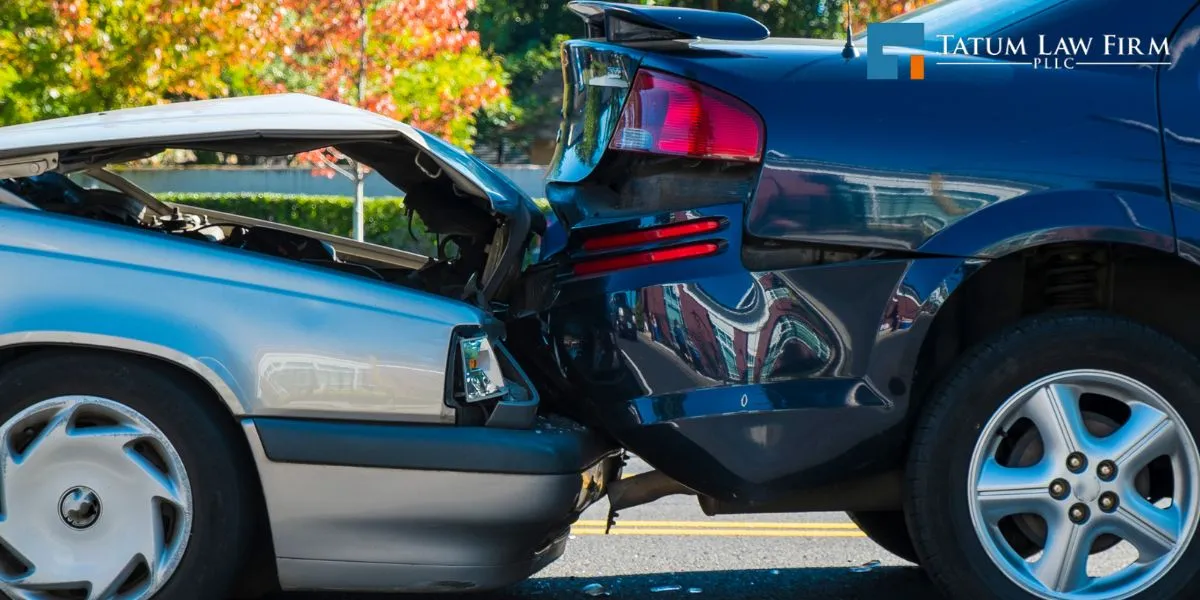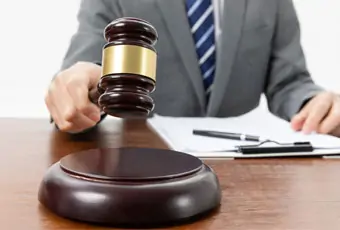Charlotte Rear End Collision Lawyer

Charlotte Rear-End Collision Attorney
Rear-end collisions occur when a vehicle crashes into the vehicle in front of it. These collisions are often caused by distracted drivers following too closely or sudden changes in the road conditions. The driver who was following too closely is almost always presumed to be at fault.
In some cases, however, the driver of the car that was hit may be found to have contributed to the accident in some way. A common injury that results from rear-end accidents is whiplash, which includes a variety of neck injuries. The neck and back area may suffer soft-tissue damage due to the impact that launches the driver’s and passengers’ bodies forward while their heads remains still.
As a result, the neck and back are subjected to extreme and sudden extension causing pain and stiffness. Injuries to the face and head may also occur, depending on the vehicle’s speed, which may cause the air bag to deploy. Car accident injuries can be severe and long-lasting, requiring significant medical treatment and rehabilitation.
If you are a motorcyclist who has experienced such an accident, consulting a Charlotte Rear End Collision Lawyer can help you understand your legal options.
Receiving Compensation After a Rear-End Collision in Charlotte
All drivers have a legal duty of care to drive safely, including following traffic laws, maintaining a proper distance from the vehicle ahead, and refraining from driving recklessly. When a driver breaches his or her duty of care, this is often due to negligence.
If you are a victim of a rear-end collision resulting from another driver’s negligence, you have the legal right to receive compensation for your injuries, which the court refers to as damages. To navigate the legal process effectively, you can seek assistance from our Charlotte personal injury lawyer. To be able to receive this compensation, however, you will need to prove that the driver was the proximate, or direct, cause of the accident that resulted in your injuries.
North Carolina’s System of Contributory Negligence
North Carolina is one of only four states that adheres to the strict system of contributory negligence. What this means is that a plaintiff who was injured by a defendant whose negligence is the proximate, or the direct cause of the plaintiff’s injuries, is generally barred from recovery of compensation against the defendant when the plaintiff also contributed to the accident.
This means that both parties were at fault, even if the plaintiff’s fault is very small and the defendant’s is very large. Although you may have only been 1% at fault, you will be barred from recovering anything.
Therefore, in Charlotte, North Carolina, it is important to establish whether the victim contributed to the accident in any way and who is at fault in order to determine whether the victim will be able to recover (i.e., receive compensation) for his or her injuries. Consulting with experienced Charlotte car accident attorneys can be crucial.
South Carolina’s System of Comparative Negligence
South Carolina follows a different system than North Carolina and recovery in all states may vary. South Carolina’s comparative negligence system provides for the distribution of damages between the driver who was primarily negligent and the victim whose was less so in causing the accident. The person who was at fault will not automatically be barred from recovery.
The insurance company will compare his or her percentage of negligence against the other driver’s percentage and then recovery is based on this formula. If you are found to have contributed to the negligence in any way, you will share some liability for your damages.
Contact an Experienced Attorney Regarding Your Claim
The Tatum Law Firm is committed to serving clients in both North Carolina and South Carolina by applying its experience in handling rear-end accident claims in both states to help you obtain the recovery you deserve.
Because of the doctrine of contributory negligence, drivers should be wary in talking to their insurance company’s adjuster before talking to an attorney because the adjuster may try to use any statements against the driver to argue that the driver was also negligent and should not recover.
If you have questions about your accident, please contact the Tatum Law Firm for a free consultation.






